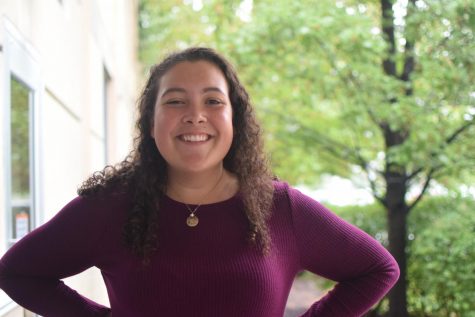
Hello! My name is Hannah and I’m (finally) a senior at TAHS. I hope to be writing the swim stories and other student and alumni spotlights. This is my...
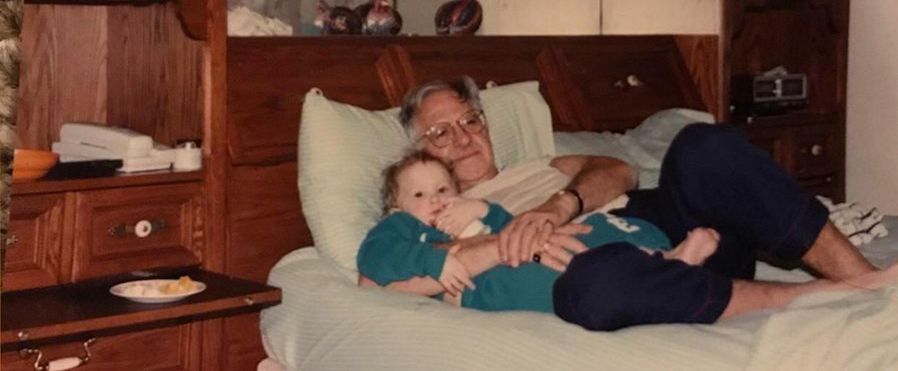

January 25, 2018
Demi Shields is a Certified Recovery Specialist at the Blair County Drug and Alcohol Program. Shields and two other colleagues recently did a presentation at Tyrone High School to emphasize the problem of opioid addiction. Shields is in long time recovery and hasn’t had a drink or a drug since July 22, 2013.
Given up by her mother because of her own life battles and never having met her biological father, she was raised by her grandparents from the age of 18 months. Demi’s grandfather stepped up to fulfill a fatherly role.
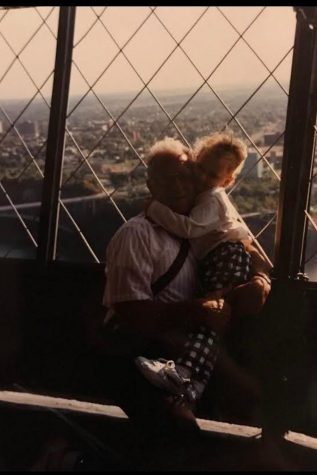
“He was my Dad. We did everything together… we played golf, we swam and played basketball. I fell in love with sports. He was that annoying parent coaching from the stands. Every time I scored he would point and smile. We would play one on one basketball every night after school. He taught me never to give up. Even when I was tired, I didn’t give up,” said Demi.
On May 2, 2006, Demi’s grandfather suffered a tragic and sudden heart attack in his downstairs den.
“At 14 years old, I had realized that I just lost my best friend, the man who I slept beside every night. This was the first night that I slept alone. I was so emotionally and spiritually broken that I was unable to process my own feelings. I didn’t know how to grieve,” said Demi.
Just two weeks after the loss of her grandfather, Demi started using drugs to fill the void.
Soon after, she began to smoke marijuana daily and stopped playing sports. Her teachers took notice of the sudden drop in her grades. The school psychologist came in to assess her and gave her a drug screening.
She failed the test.
Opioids kill approximately 91 people per day in the US, 13 of them from Pennsylvania alone.
According to teens.drugabuse.gov, “Opioid drugs bind to opioid receptors on cells in the brain and throughout the body. Some of those cells control a person’s digestion, pain, and other functions; your body already contains opioid chemicals, such as endorphins, which relieve pain and make you feel good during exercise. When opioid drugs attach to these receptors, they dull a person’s perception of pain even more. That’s why they can be so useful for people recovering from serious injuries or surgery.”
Many opioids are prescription drugs, but heroin is also an opioid.
Because heroin is either injected or directly snorted, it goes straight into the body and brain. Heroin isn’t good for pain relief, but it’s very easy to get addicted to because it gives an extreme high that doesn’t last long.
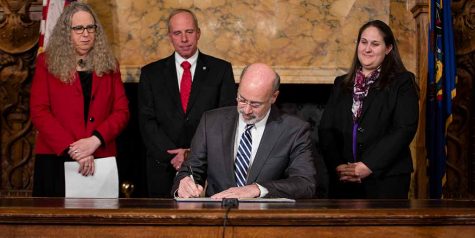
On January 10th, 2018, Pennsylvania Democratic Governor Tom Wolf declared the state’s opioid situation a public health emergency disaster. He ordered a command center to be set up, similar to what would be done in the event of a natural disaster. Wolf signed an order for a 90 day disaster declaration. As noted by the Altoona Mirror, the declaration is to widen “access to the state’s prescription drug monitoring program and [make] it easier for medical professionals to get people into drug treatment more quickly.”
The state has lost more than 4,600 people in 2016 due to overdoses. Pennsylvania has more than twice the national average rate of drug overdoses.
In 2017, six states, including Alaska, Arizona, Florida, Maryland, Massachusetts, and Virginia, already declared the opioid epidemic a public health emergency.
In 2015, 20.8 million people age 12 and older had a substance use disorder (SUD) related to their use of alcohol or illicit drugs within the previous year.
In Blair County, approximately 10,500 people have a substance abuse problem. However, the number of people who actually seek treatment is only 2,400.
The problem spans many generations in central Pennsylvania. Surprisingly, 23% of Blair County overdoses occurred among residents 50 years of age and over, while another 23% occur in the under 20 age group.
Within 36 hours, Demi was sent away to her first rehab center, Pyramid Healthcare Teen Inpatient, at Ridgeview in Gibsonia, PA, where she stayed for 90 days.
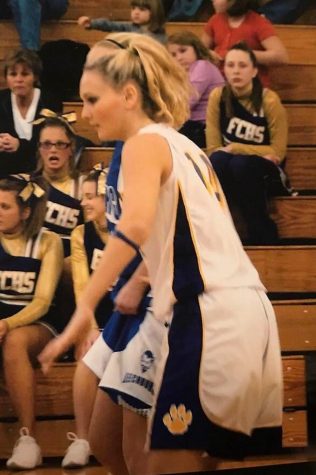
“A little over halfway through [rehab], I started to realize that using may have been a problem. A seed was planted in me for the first time. A little seed that had told me there is more to life,” said Demi.
Unfortunately, after a few weeks, she slipped back into the grips of addiction.
Towards the start of the summer, her basketball coach approached her about being a starter for her high school team in the upcoming season. To meet that goal, she would need to work hard over the break. She spent her summer going to the gym, attending Penn State women’s basketball camp, and playing in IUP’s summer league.
“I was managing my using to just weekends. I could not leave it completely alone. I still needed the substance to escape from myself. Using was my coping skill for dealing with my feelings. I was motivated enough at this point to not let it take basketball from me,” said Demi.
She was offered a chance to play basketball at Penn State Barron, but used the excuse that she couldn’t handle academics and sports.
Demi went to IUP, but the summer before she headed off to college, she began to use drugs more and more often.
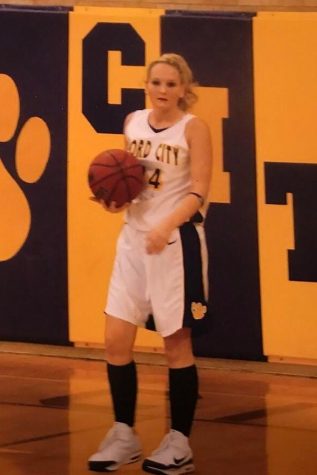
On her 18th birthday, Demi was introduced to opiates. She reasoned that since doctors prescribed it as medicine, it must be safe to use.
She ended up dropping out in her second year at IUP. Drugs became more important.
She was in and out of rehabs and institutions, but couldn’t find any way to stay clean.
She then discovered heroin and how affordable it was.
“The word hero is in the word heroin. It was the biggest lie that I ever did believe,” said Demi. “I would do anything I could to get my next fix, and then as soon as I got high, I would cry because I didn’t want to do this anymore. I prayed to God to just take me, but it would never happen.”
Eventually, she found herself homeless in Pittsburgh. It was then that she finally had a moment of clarity. A little voice in head kept saying, “You don’t have to do this anymore.”
Demi was in Cove Forge rehab center two weeks after she called a treatment center.
She struggled and fought with herself for 45 days. On the 45th morning, Demi’s obsession was lifted. She left better mentally, physically, and spiritually.
“My detox was absolutely atrocious. The obsession to use was so powerful. I was trying to break out of my self-made prison inside of my mind. I was at war with myself. Most importantly I was fighting for my life. On [the 45th] day, it was the first time I ever believed in myself. My journey to recovery has started. I was able to make a clear decision. The feelings of ‘Am I going to feel like this forever?’ were gone,” said Demi.
After that, she spent 78 days in inpatient rehab and volunteered at the halfway house.
Demi secured a job in three weeks after living in Pyramid Traditions halfway house.
She saved her money to buy her own apartment while attending 12 step programs.
She graduated the from the halfway house. At the age of 22, Demi was out on her own, trying to figure out life, while becoming a functioning member of society.
She was paying rent and bills and following through with goals and advice.
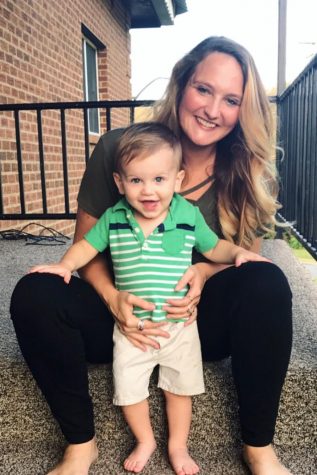
Commitment has become a big part of Demi’s life because showing up gives her a good feeling.
“In the first two years of recovery, I spent a lot of time learning things about myself. I was developing a relationship with [my]self. I learned to love myself again,” said Demi.
She switched jobs and worked for a quadriplegic man, who has become a good friend. She still works for him one day a week.
Eighteen months after being clean, Demi found out she was pregnant. She and her significant other were filled with joy because Demi had been told that the chance of her getting pregnant was very slim.
“The day my son was born is now the greatest day of my life. This little boy filled my heart with so much love and gratitude. I saw my reflection in my son’s eyes. What a beautiful spiritual experience,” said Demi.
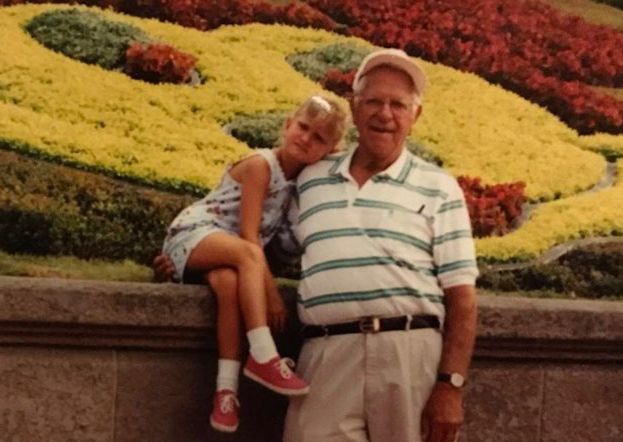
“Recovery teaches us that we are not alone, we are never alone. I don’t have to do anything by myself. My ability to trust someone came back. I was able to build relationships with people that were genuine and healthy. I had dreams that I thought were lost. I came to a point where I wasn’t going to let anything stop me from fulfilling them. I preserved through trials and tribulations. There were times I just wanted to throw the towel in, but my support group held me up and told me everything will work out in time… be patient. I was fully committed and dedicated. ‘No’ started being a motivator,” said Demi.
Demi was accepted to college just a few months ago.
“If you ever were asked if there was one thing that you didn’t do in life, what would you have done? Mine is for sure a college degree,” said Demi.
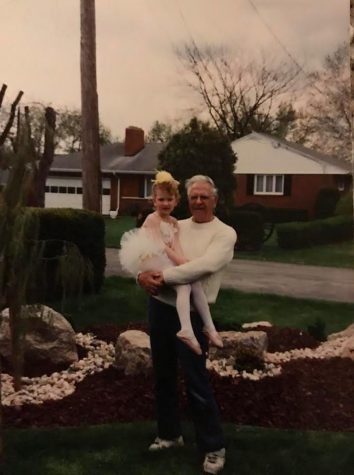
“I didn’t get clean just to be clean. I got clean so that I can do the impossible. My lost dreams have awakened I’m able to say right now in this moment I’m proud of myself. I believed in myself just like that day in rehab when I woke up and seen the light. My family trusts me again. My grandma is so proud of me and that’s all that matters. She helped shape me into the strong… Independent woman I am today. I want to remain a part of the Young and Recovering community… because just for today I never want to use again,” said Demi.
People may think she used because her grandfather died or because her mom walked out of her life, but, according to Demi, those were just symptoms, not reasons.
“I had the disease of addiction way before I picked up the drug. I have been blessed with so many things in these last four years. Recovery is a gift, and I am not going to take it for granted. Without recovery, I wouldn’t be a mother, a significant other, or a friend. My recovery foundation is strong and I could not have made it without them. I’m going to say we did this together. Love is the most powerful spiritual principle there is. Love yourself, love others, and love God,” Shields said.

Hello! My name is Hannah and I’m (finally) a senior at TAHS. I hope to be writing the swim stories and other student and alumni spotlights. This is my...
Cathy Harlow • Jan 26, 2018 at 12:21 pm
I appreciate that you took the time to develop this story. It is such an important topic to present to our students so they understand the power of addiction and its effect. Great job Hannah!